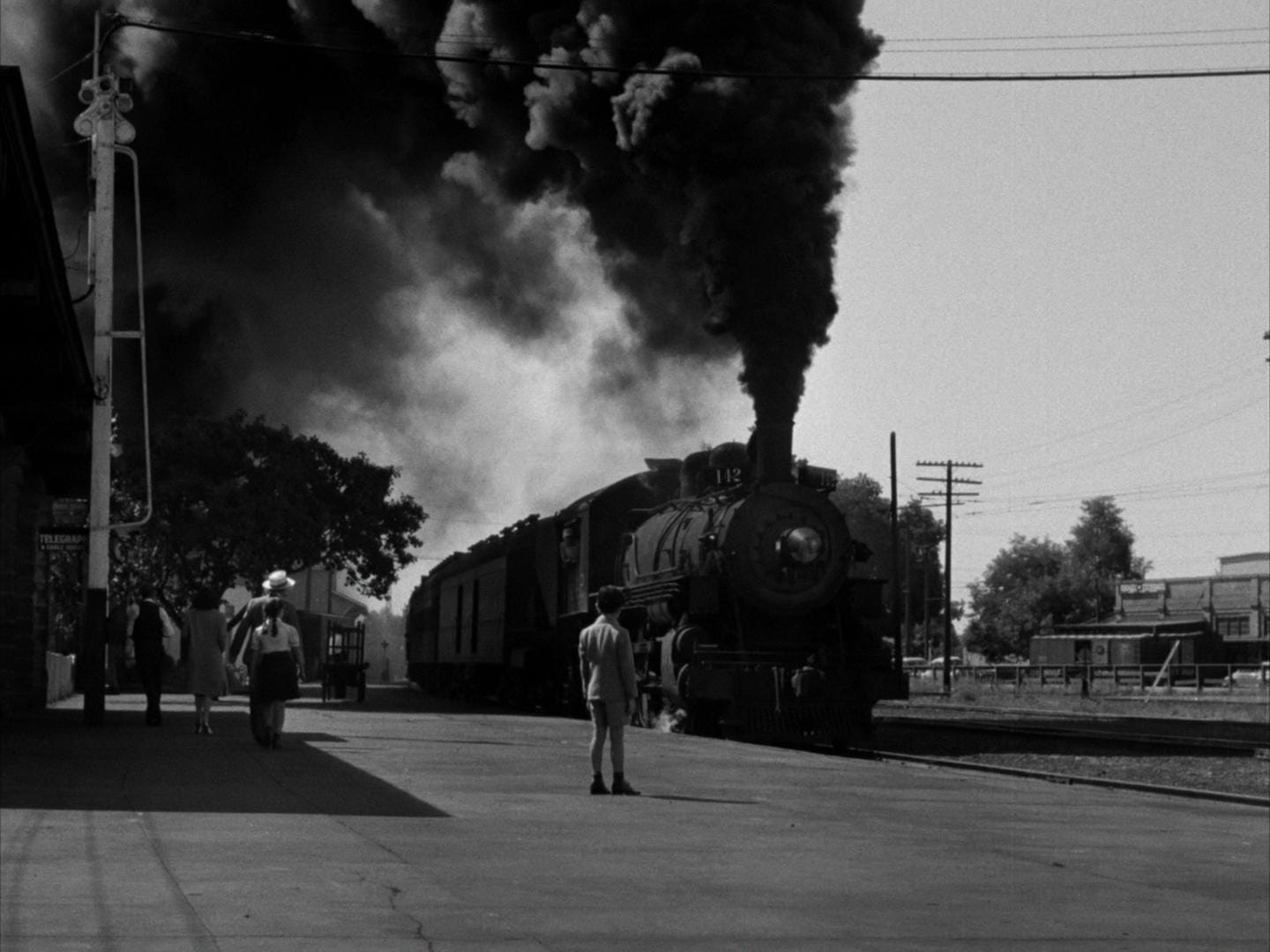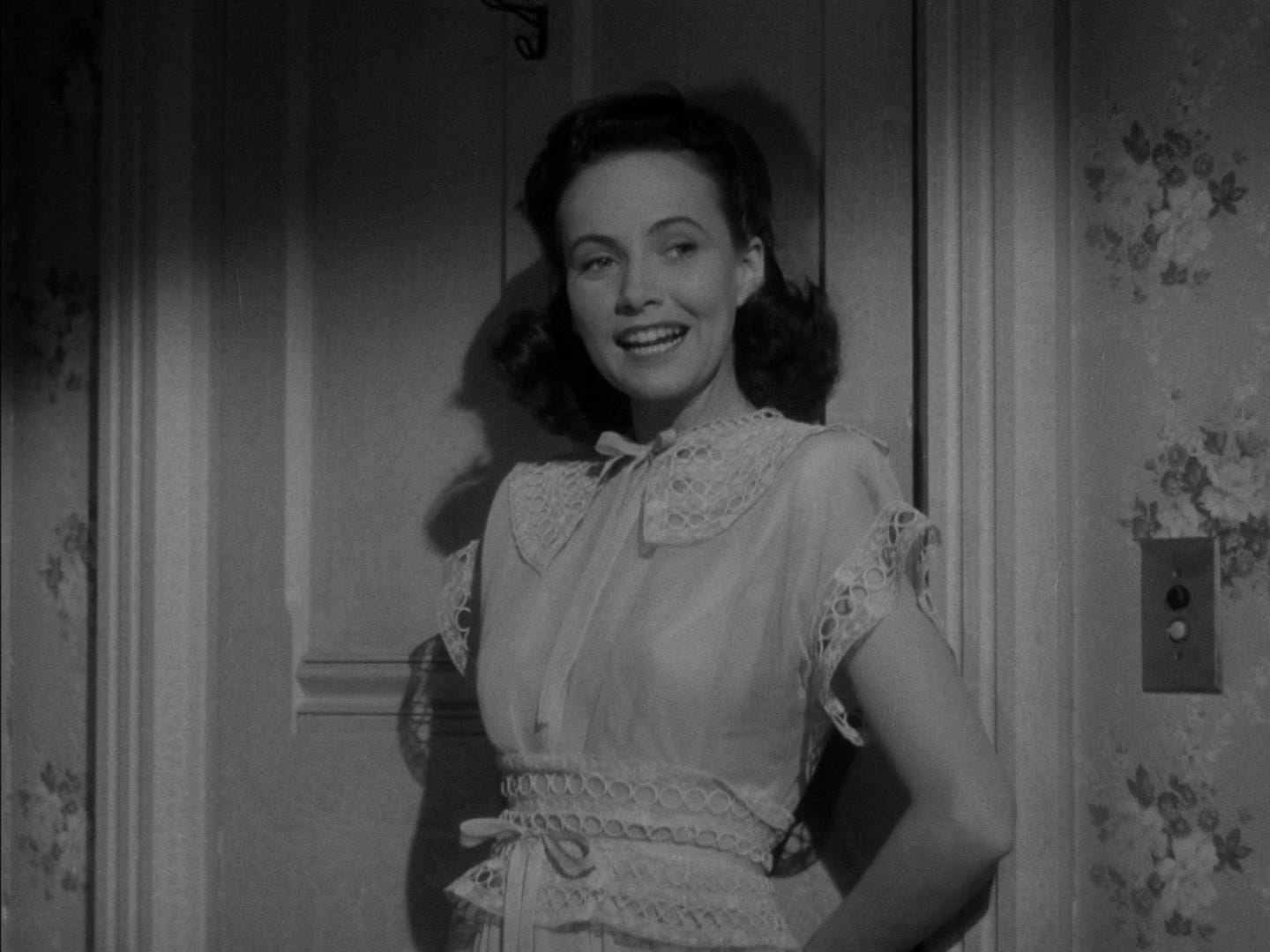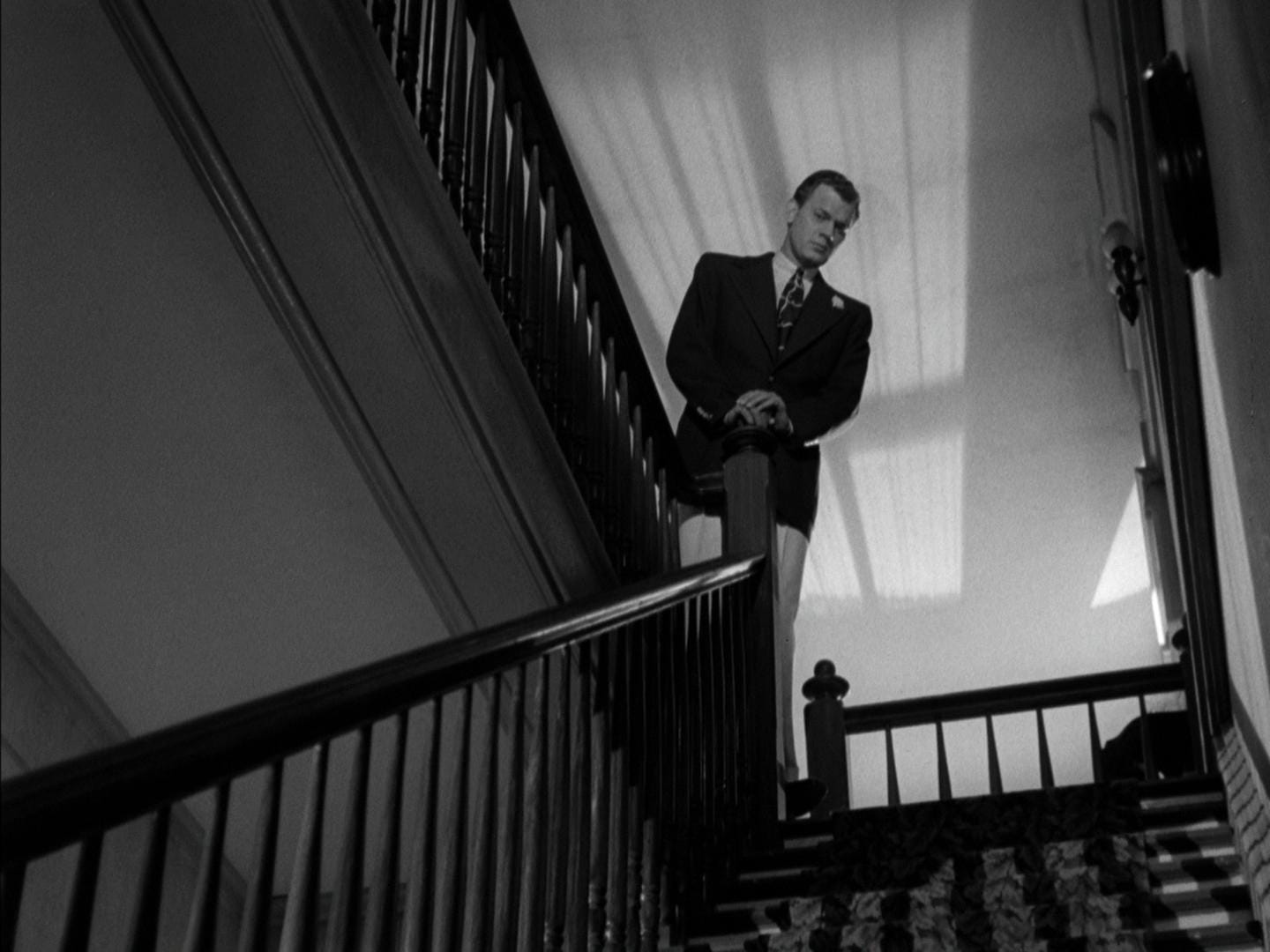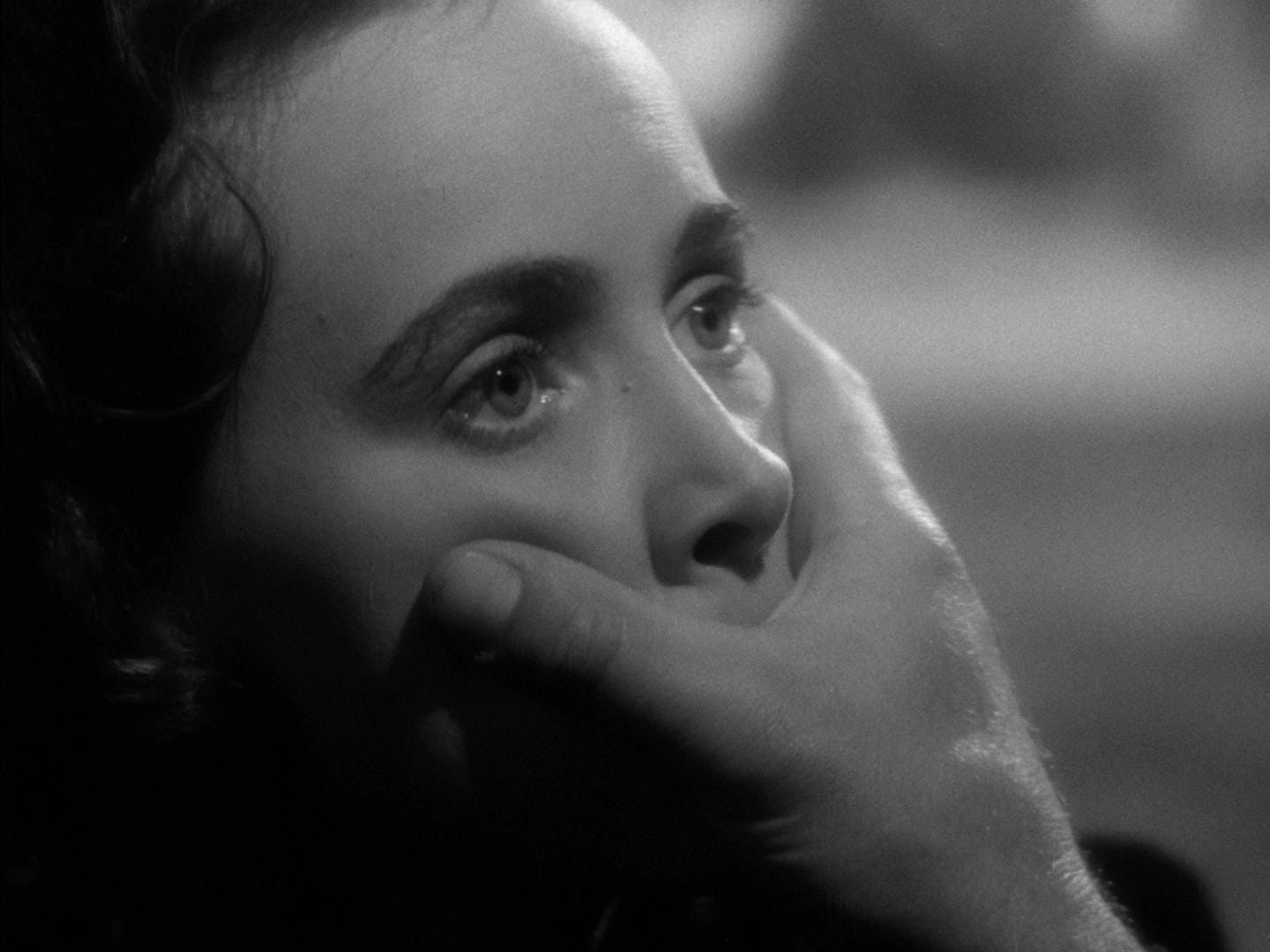SHADOW OF A DOUBT (1943)
"You live in a dream."
Charlie Newton, a white middle-class teenager living in suburban California, is bored. Her parents (still married) and younger sister are happy and comfortable, content to lead modest lives of routine day in and day out. Charlie wants to add some excitement to their lives, so she decides to invite her worldly uncle (who shares her name) to visit and stay with them a while. As fate would have it, Uncle Charlie had already telegrammed his sister Emma (Young Charlie’s mother) to say he was doing just that. She’s ecstatic and the family greets him warmly.
Everywhere Uncle Charlie goes he’s charming company, throwing around money, or giving gifts. But when Young Charlie begins observing more peculiar behavior in private, she surmises her uncle has something to hide. And when two detectives masquerading as census-takers show up to ask questions, it only confirms her suspicions. The last thing she expected to find was that her Uncle Charlie may be wanted for murder.
Asked to summarize the overall theme of Shadow of a Doubt, Hitchcock offered: "Love and good order is no defense against evil.” Hitchcock shows us that, even in the American suburban home of the idyllic nuclear family, there is a sickness of evil lurking beneath the surface. The uncovering of that evil may have coincided with the arrival of Uncle Charlie, but it was always there - or at least the capacity for it. It’s suggested by the conversations about ways to get away with murder between Young Charlie’s father and his neighbor Herbie. There are glimpses of it in the seedy bar where Young Charlie’s friend Louise works - the closest Santa Rosa comes to looking like the outside world we see at the beginning. And Young Charlie can feel it like a psychic force before her uncle’s arrival.
Uncle Charlie is that sickness made manifest. On the train to Santa Rosa (which arrives in a cloud of black smoke), he feigns illness to keep a low profile from the other passengers, but he is sick in another sense. We’re told, through exposition by his sister Emma, that the symptoms began after a childhood accident from which he never quite recovered.
For Young Charlie, the realization of evil’s existence makes an irrevocable change in her life - though she does her best to contain and shield her family from it. Her only confidant is the detective Graham, whose vocation is to confront and defend the world from this evil (by preserving the prevailing hegemony’s status quo), but even he’s not able to see everything she can and, further, appears ignorant to the sexual tension between the two Charlies as he obliviously makes his own overtures to her.
After the closing scene, one could imagine Young Charlie growing into a world-weary cynicism not unlike the one espoused by her uncle. After all, before accidentally killing him, Charlie did threaten to kill him if he harmed her mother. It seems unlikely that Charlie would become like her uncle, however; she exhibits none of the same compulsions he proved unable to control, nor shows the same stomach for violence that he had. And, it should be distinguished, cynicism is not the same as nihilism.
Young Charlie still has a chance. She leaves adolescence - a period in which one struggles not only to become, but against becoming one of an infinite variety of forms - having faced evil and survived it, but (critically) not defeating it.
“He said that people like us had no idea what the world was really like,” Young Charlie tells Graham at the end. “Well, it's not quite as bad as that,” he replies, “but sometimes it needs a lot of watching. It seems to go crazy every now and then…”
Shadow of a Doubt isn’t currently available from a streamer, but it is available to rent through most major digital platforms. And, for the moment, it can be found here.
Further Viewing
Prison Break star Wentworth Miller wrote what I’d describe as a pseudo-remake of Shadow of a Doubt called Stoker, directed remarkably by Park Chan-wook (Oldboy, The Handmaiden). It makes literal a lot of the subtextual themes here and Park employs lots of great Hitchcockian visual techniques to fun effect. It’s currently streaming on HBO Max.
Up Next
Lifeboat, which is available on Blu-Ray from Kino Lorber or to rent through most major digital platforms.
Cameo
Approximately 16 minutes in, Hitchcock can be seen playing cards on the train (holding, it should be added, a hand of all spades).
References
Screen captures sourced from Film Affinity
The Alfred Hitchcock Wiki: The Hitchcock Cameos
Truffaut, Francois. Hitchcock. United States, Simon & Schuster, 1985.





